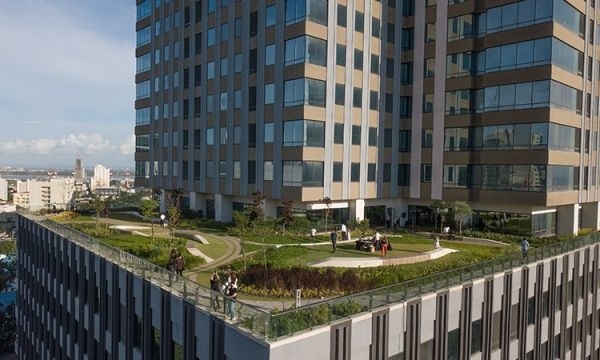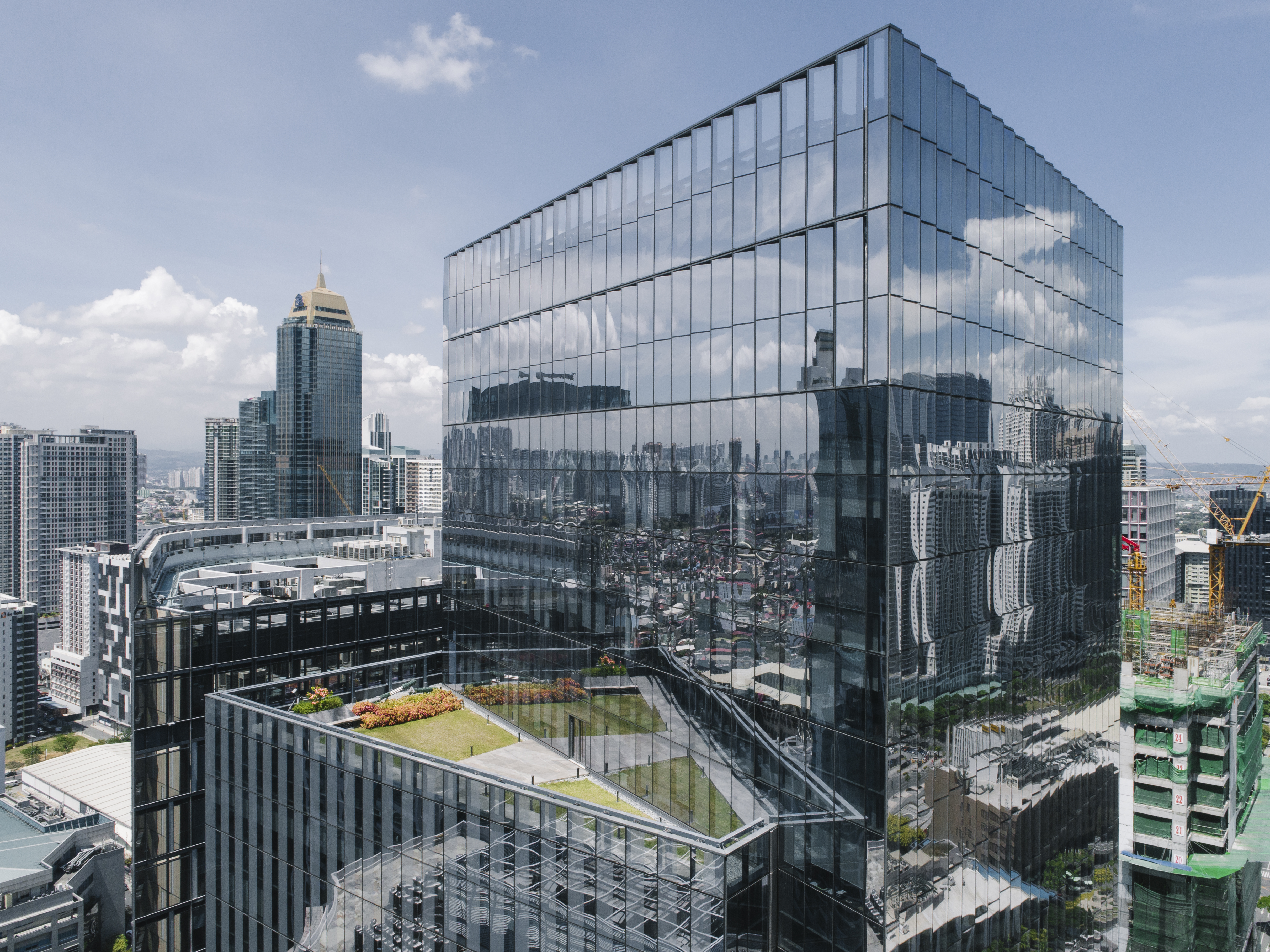
ClimateBiz Podcast | Net Zero Buildings
June 21, 2020

PROPERTY developer ARTHALAND is on track to achieving net zero emissions for its two premium projects in Cebu—Cebu Exchange and Lucima.
According to Oliver Chan, ARTHALAND’s senior vice president, the company hopes to achieve its net zero ambition of Cebu Exchange next year and for Lucima in six months to a year after its completion by the third quarter of 2025.
Cebu Exchange is a Grade A office and commercial tower located along Salinas Drive, Barangay Lahug, Cebu City with a gross floor area of 108,564 square meters. It is the largest pre-certified Well building in the Philippines.
Lucima, on the other hand, is a residential condominium tower inside the Cebu Business Park on Cardinal Rosales Ave. corner Samar Loop. It has a gross floor area of 2,245 square meters. Its building foundation has been completed and structural works for the second basement are ongoing. The residential tower is also the first high-rise residential project vying for IFC’s Edge Zero Carbon certification in Southern Philippines.

Net zero building
Chan said the net zero certification is applied per project and should be operational during the time of application. According to World Green Building Council, the definition of a net zero carbon building is one that is “highly energy-efficient and powered by renewable energy sources on-site and/or off-site, with any offsetting carbon balance remaining.”
“There is clear evidence that climate change is contributing to stronger typhoons. Super Typhoon Odette (Rai) left thousands of families homeless, reversing some significant economic and social progress that the Philippine government had started to realize from the country’s recovery from the pandemic. The typhoon caused widespread damage to houses, public infrastructure, and power and telecommunications services in more than seven provinces across the Philippines, including our very own Cebu. Now, more than ever, our net zero commitment is critical to the times,” said Jaime González, vice-chairman and president of ARTHALAND.
González said ARTHALAND is the first developer in Asia to be a signatory to the World Green Building Council’s Net Zero Carbon Buildings Commitment in 2020.
“Hundred percent of our projects are registered and are on track for net zero carbon certification – this manifests our leadership in the decarbonization of the building and construction industry,” he said.
ARTHALAND is aiming to hit its net zero ambition by 2030
Market preference
Chan said certifications such as this, along with the other “green” certifications,” are crucial these days due to concerns about climate change. The market now is also willing to pay higher rent for green buildings with concerns on climate risk and sustainability of operations in mind. He added that the pandemic and the strong typhoons have also intensified the need for sustainable and high-quality designed structures.
Cebu Exchange’s decarbonization of its operational energy is anticipated to reduce carbon emissions, equivalent to planting and growing one million trees over a 10-year period
“ARTHALAND believes that the benefits of green buildings will not only be for its residents and occupants but also extends to the community. As an advocate for sustainability, we hope that more people will live sustainably so we can help mitigate the impact of future calamities,” González stressed.
During Typhoon Odette (Rai), Cebu Exchange only incurred minor damage to some glass windows, particularly in the upper floors which were still under construction due to strong winds and flying debris. But the building’s structure remained unaffected and sound, demonstrating the structural integrity of Cebu Exchange, said González.
Occupancy
Moreover, Cebu Exchange’s occupancy rate has been picking up with only two floors out of the six that are vacant in the low zone. The tower will also start the turnover of units for the high zone starting this month. Cebu Exchange is a 39-story office and commercial tower with 301 units.
Chan said the strong recovery in office leasing is expected to take place this year. But even last year, the industry already saw high transactions in Cebu amid the pandemic and Typhoon Odette.
“People in business were looking for satellite offices with complete infrastructure for their business continuity,” he said.
Amid the proliferation of office towers and office vacancies that need to be filled in, Cebu, according to Chan, still has that extra advantage over Manila in terms of cost of operations, availability of talent and support infrastructure, among others.
“These factors have continually make Cebu quite attractive to multinational companies,” he said.
This article was first seen in SunStar | Words by Katlene O. Cacho

June 21, 2020

June 7, 2023

September 16, 2022

May 27, 2025

June 23, 2023

August 17, 2023

October 22, 2025

March 25, 2024

May 2, 2024